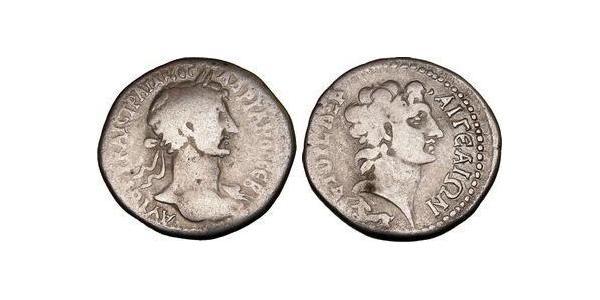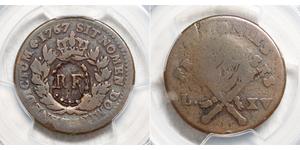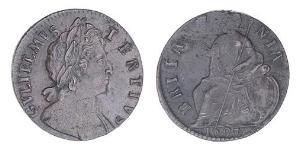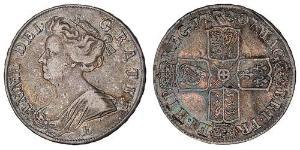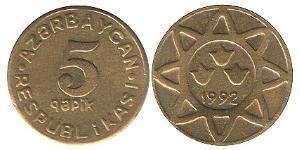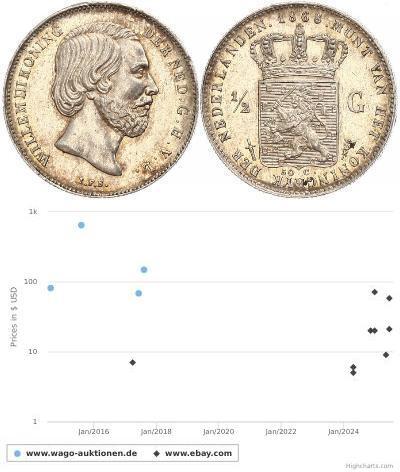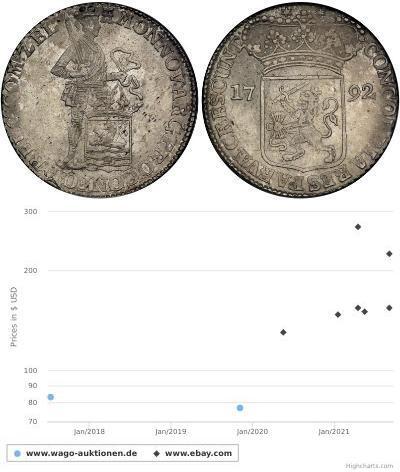[ 0824] ALEXANDER the GREATHadrian, 117-138 A.D. Silver Tridrachm (25mm ,10.23 gm.), Cilicia, Aigeai. Very Rare. Dated Caesarean Era 164 = 117/118 AD. Reference: Prieur 715 Obverse: AYTOKP KAIC TPAIANOC AΔPIANOC CEB, bare-chested, laureate bust right, fold of cloak on front shoulder. Reverse: AIΓЄAIΩN ETOYΣ ΔΞP, diademed head of ALEXANDER the GREAT right, goat below. Provided with Certificate of Authenticity. CERTIFIED AUTHENTIC by Sergey Nechayev, PhD - Numismatic Expert Publius Aelius Hadrianus (as emperor Imperator Caesar Divi Traiani filius Traianus Hadrianus Augustus, and Divus Hadrianus after his apotheosis, known as Hadrian in English; 24 January 76 – 10 July 138) was emperor of Rome from AD 117 to 138, as well as a Stoic and Epicurean philosopher. A member of the gens Aelia, Hadrian was the third of the so-called Five Good Emperors. Hadrian was born Publius Aelius Hadrianus in Italica or, less probably, in Rome, from a well-established family which had originated in Picenum in Italy and had subsequently settled in Italica, Hispania Baetica (the republican Hispania Ulterior), near the present day location of Seville, Spain. His predecessor Trajan was a maternal cousin of Hadrian's father. Trajan never officially designated a successor, but, according to his wife, Pompeia Plotina, Trajan named Hadrian emperor immediately before his death. Trajan's wife was well-disposed toward Hadrian: Hadrian may well have owed his succession to her. Hadrian's presumed indebtedness to Plotina was widely regarded as the reason for Hadrian's succession. However, there is evidence that he accomplished his succession on his own governing and leadership merits while Trajan was still alive. For example, between the years AD 100–108 Trajan gave several public examples of his personal favour towards Hadrian, such as betrothing him to his grandniece, Vibia Sabina, designating him quaestor Imperatoris, comes Augusti, giving him Nerva's diamond "as hope of succession", proposing him for consul suffectus, and other gifts and distinctions. The young Hadrian was Trajan's only direct male family/marriage/bloodline. The support of Plotina and of L. Licinius Sura (died in AD 108) were nonetheless extremely important for Hadrian, already in this early epoch. Payment & Shipping: Will accept payments via PayPal. = MM_contentVersion;
}
else if (navigator.userAgent && navigator.userAgent.indexOf("MSIE")>=0 && (navigator.appVersion.indexOf("Win") != -1)) {
document.write('\n');
document.write('on error resume next\n');
document.write('MM_FlashCanPlay = ( IsObject(CreateObject("ShockwaveFlash.ShockwaveFlash." & MM_contentVersion)))\n\n');
}
if (MM_FlashCanPlay) {
document.write('');
document.write(' ');
document.write(' ');
document.write(' ');
document.write(' ');
document.write(' ');
document.write(' ');
document.write(' ');
document.write(' ');
document.write(' ');
document.write(' ');
}
else {
document.write(' ');
document.write(' ');
document.write(' This Vendio Gallery is best viewed with Macromedia Flash Player 6or higher. ');
document.write(' Click here to get the latestMacromedia Flash Player. ');
document.write(' ');
document.write(' ');
document.write(' ');
}
//--> Your browser does not support JavaScript. To view this page, enable JavaScript if it is disabled or upgrade your browser.
читати далі

|
Добавив:
anonymous 2015-08-19 |
Similar Coin Groups
2025-05-29
- Історичні ціни на монету
2025-05-25
- Історичні ціни на монету
Можливо, Вас зацікавить...

